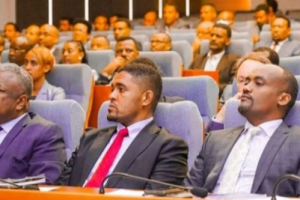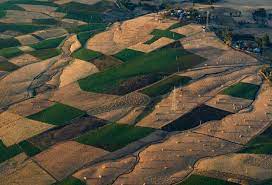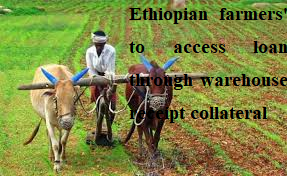
BY BACHA ZEWDIE
Pastoral life style in Ethiopia has been practiced for long though not easy to anyone to mention the exact time of its beginning. People in such areas are characterized by earning mobile life along with their animals in search of grazing land and water. That is why they are previously known as Nomadic society.
According to the information gained from governmental institutions that are working in the field, in the current Ethiopia, there are 220 weredas identified as pastoralist and semi pastoralist in Afar, Somali, and Oromia regions and 173 weredas in South Western and South Nations, Nationalities and Peoples’ regions as well as 47 weredas in Gambella and Benshangul Gumuz regions.
Located about 1500 meter below sea level, these areas are known for their dry and partially dry weather. The area coverage is believed to be 60% of the country’s farm land.
As per the census conducted in 2008, the pastoralist population is estimated to be 12 – 14% of the total population of the country. And the majority of this population lives in Somali and Afar regions. Animals like cattle, camel, sheep and goats are basic economic resource of the community. Though in a traditional way, they also produce some kinds of crops such as corn, sorghum and fruits.
The area is endowed with tourist attractions like Erta Ale in Afar and reservoir of great amount of minerals, natural gas, petroleum, iron, potash and other precious minerals.
Even though blessed with all these resources, the pastoralist community is not benefited from the resources at the level it would have to. Comparing with the other parts of Ethiopia, the pastoralist and semi pastoralist area is relatively underdeveloped in economy and social aspects which undermines the beneficiary of the community. This drawback generates from inability to utilize the potential of the region. In order to ensure Sustainable Development Goal (SDG), development of this area is decisive.
To this end, formation of Ethiopian Pastoralist Development Forum is a key factor. Consequently, concerned governmental institutions such as Ministry of Agriculture, Ethiopian Cooperative Commission and Ministry of Irrigation and Lowlands along with other stakeholders have conducted a forum formation panel discussion on 14 October, 2022 in Addis Ababa.
The forum is aimed at enabling the pastoralist community contributes its utmost share to the nation’s economic and social development by uplifting livelihood of the society via carrying out various measures. These measures include coordinating potential of development stakeholders, enlarging market led production and productivity, expanding infrastructure, consolidating inclusive financial services and improving and designing new policies and legal frameworks.
A string committee that leads the forum will be formed at the national and regional levels. Technical committees are also formed in the areas of the pastoralist community. Besides, in coordination with regional technical committees, focal persons will be assigned to support performances at zonal and lower levels.
Giving great emphasis to the issue, concerned governmental and non governmental institutions from different offices attended the formation of the forum and conveyed messages. Researchers also presented their respective papers.
While presenting welcome speech, Firealem Shibabaw, Commissioner of Ethiopian Cooperative Commission, said that the forum going to be formed will carry multifaceted objectives of which benefiting the pastoralist community is the leading one. In order to benefit the target community thereby enabling them to contribute their share to the country’s development, it is essential to replicate the success being registered in the crop production sector, especially in wheat production in pastoralist areas.
Practicability of this goal necessitates other related facilities like utilizing technology, providing health services, and controlling illegal trading among others, the commissioner said.
She further stated that increasing production and productivity is the major issue which directly related with provision of essential fodder for the animals. On top of controlling illegal market, arranging viable market need not be put aside. Engaging trained man power into the sector for better performance is not only good, but also decisive measure that should be carried out sooner than later. Digging out the problems repeatedly happened in the sector should also be the focus area of the forum.
Doing so, increasing production and productivity of the animals and animals’ results such as meat, milk and eggs will be attained. Efforts exerted to put these ideas on the ground will be none without the life blood of the business, finance. Thus, providing inclusive financial service is a matter of to be or not to be for the forum. To this end, financial institutions are ready to work collaboratively with the stakeholders.
According to the commissioner, for the pastoralists, it is essential to depart from traditional way of animals’ breeding and transform to commercial one to be competent in the market and gradually to transform to agro processing sector. Increasing products in quantity and quality in a sustainable manner to attain the required benefit should be a must do action for the concerned bodies.
Firealem added that there is a plan to increase annual products of animals’ results in the coming ten years. As per the plan, milk product will be projected from 3.7 to 10.7 billion liters; meat from 188,000 to 1.6 million tons; chicken beef from 71,000 to 137,000 and eggs from 1.8 to 3.8 million. Ministry of agriculture is mandated to move benevolent stakeholders to translate the plan into practice.
Minister of Irrigation and Lowlands, Aysha Mehammed on her part said that pastoralism is a viable economic lifestyle but could not be led in an integrated mechanism. The forum, thus, is expected to help circumvent the problems related to the sector and to gain better of it.
As to the Minister, the lifestyle needs recognition of the concerned bodies to transform the sector to developmental pastoralism. Efforts should be exerted to make the sector drought resilient that enables to utilize the largest amount of animals’ asset.
Unlike negative attitudes towards pastoralism in previous times, the sector is not a problem. Rather, it is economically beneficial not only to the community, but also at the national level. Thus, special attention should be given to the sector, the Minister underscored.
On his part, Oumer Husein, Minister of Agriculture said that world economy is distorted because of crisis prevailing on the globe. As a result, price hike of food items will sustain. Ethiopia, though equally vulnerable to the problem, is working to rescue its people exerting greater effort to food crop production. On the contrary, the animals’ resource denied the focus given to the crop production which resulted in low annual consumption rate in animals’ products per person.
The sector deserves special consideration. The forum puts foundation and paves way to improve the sector and upgrade benefits from it. To this end, animals’ fodder should be improved; water supply is critical to withstand the drought. Though political commitment is decisive, it is not enough by itself. Thus, stretching fair market system and professional support that fits the sector are equally essential. Providing series of training should be a timely issue, the Minster underlined.
On the occasion, papers by different experts were presented. As per the papers, status of the livestock and marketing system should be improved because the sector contributes about 40 percent of the agriculture GDP and 20 percent of the national GDP of Ethiopia.
As indicated in the papers, animals’ resource shows growth in amount but the basic issue is its benefits to the people and the country. In addition to low consumption rate locally less than one million animals slaughtered annually, meat export is below one percent. Therefore, it is targeted to improve such deficiencies in the coming ten years. Involvement of private sector in fodder production, genetic improvement and health services should be taken as a serious issue. Government will gradually get out of the sector and the private sector will be the main actor.
THE ETHIOPIAN HERALD WEDNESDAY 26 OCTOBER 2022





